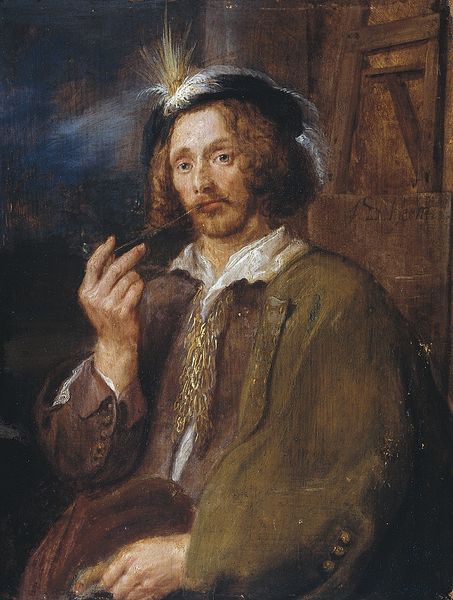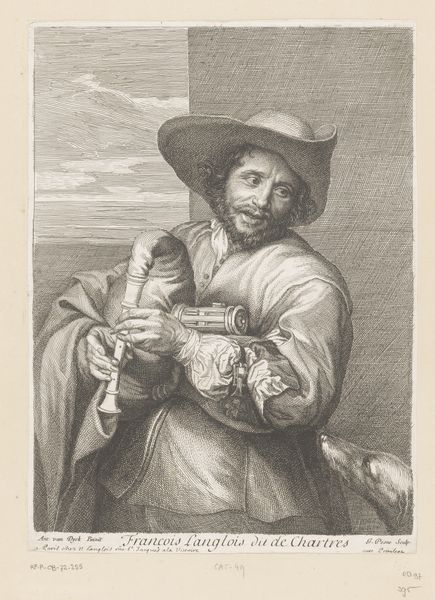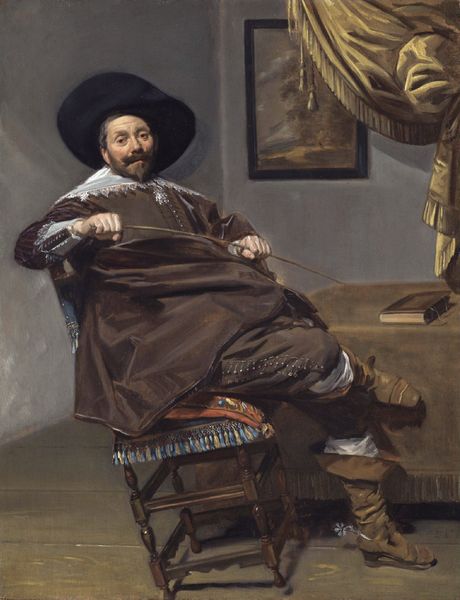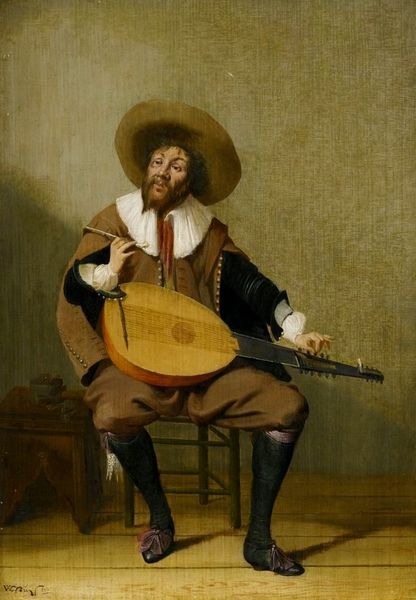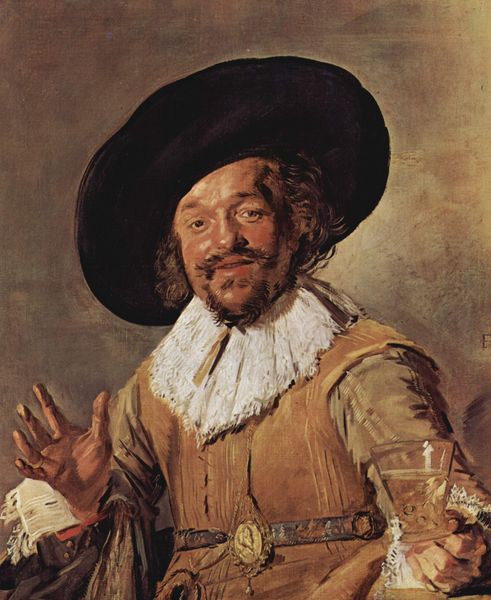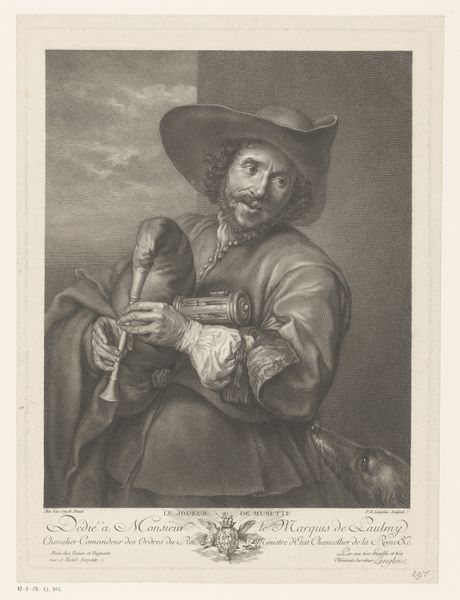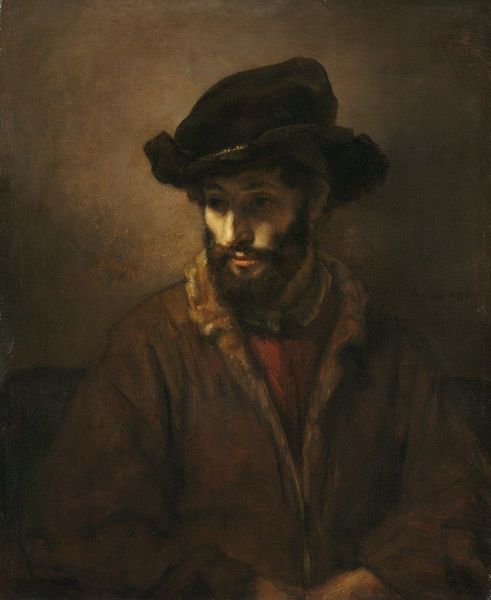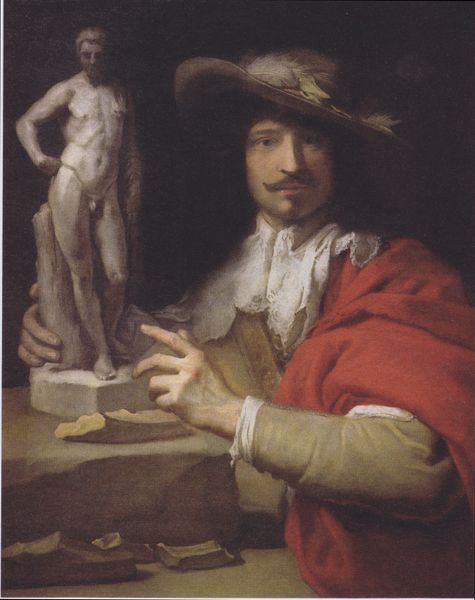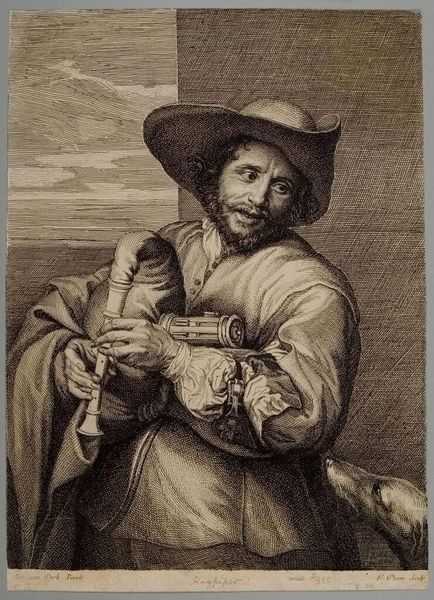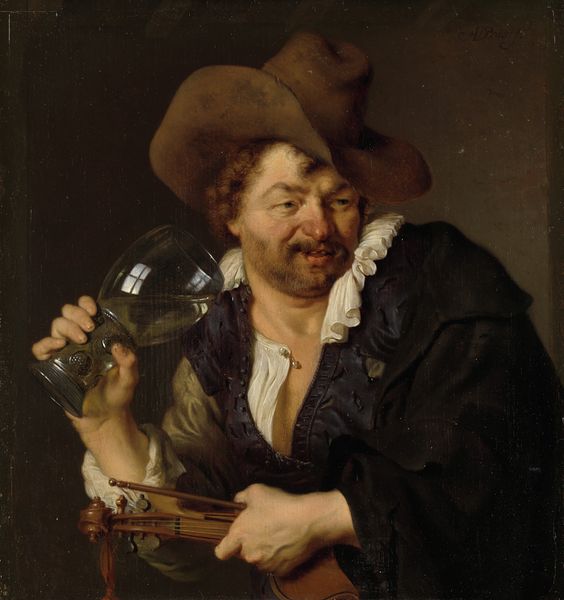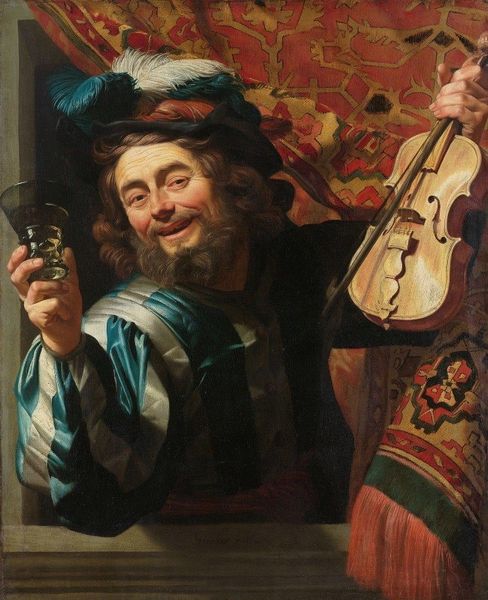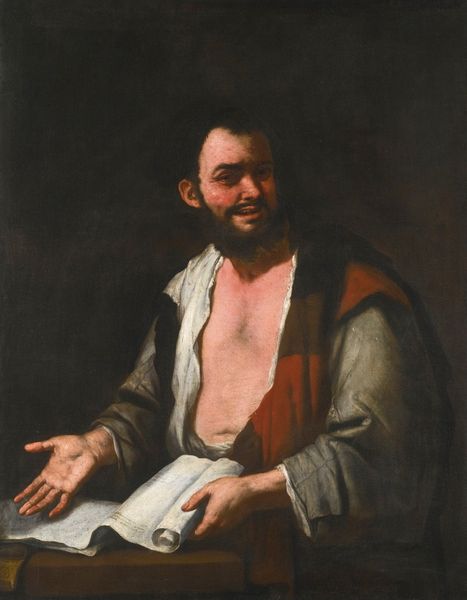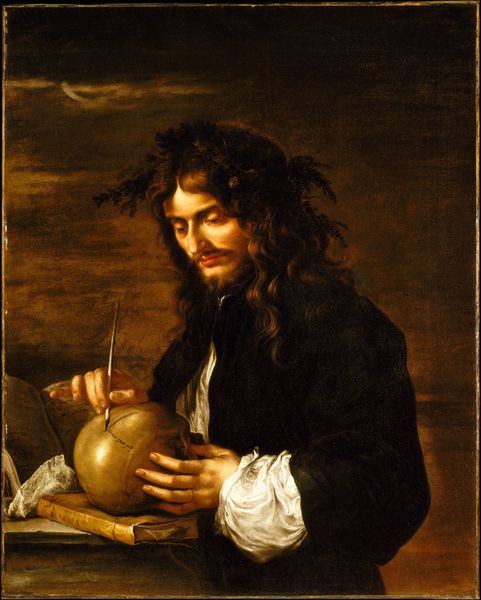
Copyright: Public domain
Anthony van Dyck painted "François Langlois" here at the National Gallery in London using oils. The painting's composition strikes a balance between formal portraiture and informal genre scene. Langlois, set against a backdrop of ambiguous architectural and natural forms, is seen holding a bagpipe, drawing attention to his position as a musician or entertainer. Van Dyck's handling of color, particularly the dominant reds and browns, and the surface texture is key to the artwork’s appeal. The texture is applied loosely in some areas, while details such as Langlois's face are rendered with precision. This approach allows Van Dyck to capture the immediacy and vitality of his subject. The diagonal lines formed by the bagpipe and Langlois’s pose create a dynamic visual tension, suggesting movement and engagement. The semiotic reading of the bagpipe could be a symbol of cultural identity or social status, which adds a layer of complexity. Through these formal techniques, van Dyck captures a sense of spontaneity, inviting the viewer to reflect on the interplay between representation and reality.
Comments
No comments
Be the first to comment and join the conversation on the ultimate creative platform.
